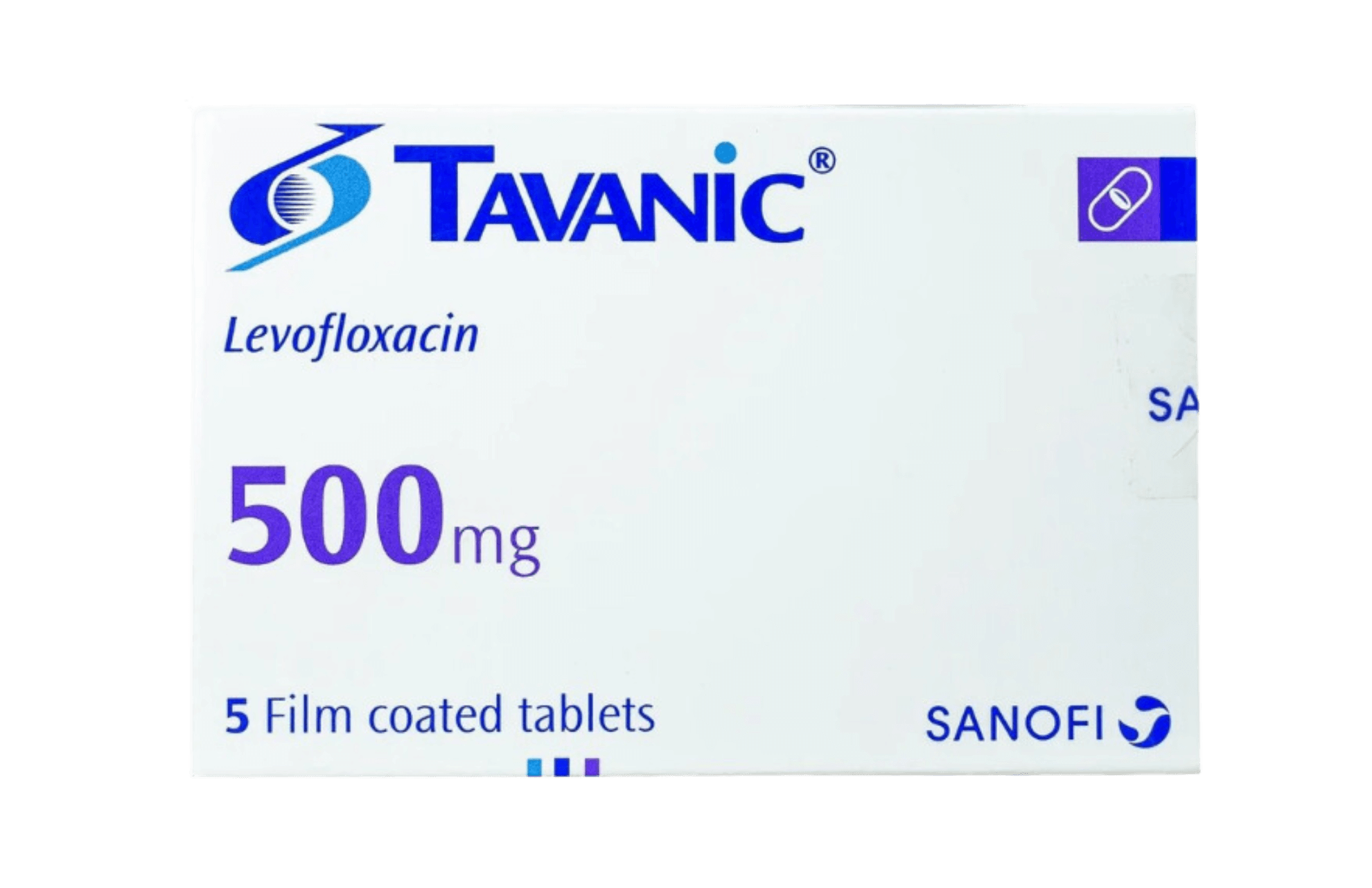Levaquin (generic name: levofloxacin) is an antibiotic used to treat various bacterial infections in adults.
Levofloxacin belongs to the
fluoroquinolone class of antibiotics, which work by inhibiting bacterial enzymes called DNA gyrase and topoisomerase IV. These enzymes are critical for bacterial DNA replication, repair, and transcription, so blocking them stops the bacteria from duplicating and spreading. Levaquin treats infections such as
pneumonia,
urinary tract infections (UTIs),
sinusitis,
chronic bronchitis, and
skin infections. It is also used to prevent or treat
anthrax exposure.
This medication can be used in cases where other antibiotics may not be suitable.
Other drugs, such as
Avelox and
Ciprodex, are oral antibacterial medications based on fluoroquinolones that can also be prescribed for bacterial infections. The choice of antibiotic depends on the type of infection, the patient’s medical history, and the bacteria’s sensitivity to the drug.
For further details on levofloxacin and its uses, visit this
website.
Dosage
Always follow the healthcare provider’s dosing instructions. The dosage of Levaquin varies depending on the type and severity of the infection. For respiratory tract infections, the typical dose is 500 mg or 750 mg once daily for 5 to 14 days. For urinary tract infections, the usual dose is 250 mg once daily for 3 days. Don’t chew or crush the tablet. It should be swallowed whole with a glass of water. When necessary, a tablet can be halved at the marked line if a half-dose is prescribed.
Storage
Keep this medication in the original container away from the reach of infants and children and at temperatures below 25°C / 77°F. Please read our friendly tips on handling medicine safely.
Common questions
How long does it take for Levaquin to start working?
Levaquin begins to work within a few days of starting treatment, but it’s important to complete the full course of antibiotics to ensure the infection is fully treated.
Can Levaquin be taken with food?
Yes, Levaquin can be taken with or without food. However, avoid taking it with dairy products or calcium-fortified juices, as these can reduce the absorption of the medication.
Does Levaquin interact with other medications?
Yes, Levaquin can interact with certain medications, such as antacids, iron supplements, and blood thinners. Always inform the healthcare provider of all medications being taken to avoid potential interactions.
This text is for informational purposes only. Please consult a doctor or pharmacist before using any medication.
Read the information leaflet that comes with the medication.
Most people who use Levaquin do not experience any adverse side effects. Doctors prescribe this medication because they assess the benefits of such treatment outweigh any likely unwanted effects.
Some of the side effects that have been reported include:
- Nausea
- Diarrhea
- Dizziness
- Headache
- Insomnia
Not all side effects are listed here. If these or other unlisted symptoms persist or worsen, consult a healthcare provider or pharmacist.
Levaquin is FDA-approved for the treatment of:
- Pneumonia, which is caused by infection of the lungs by bacteria or fungi. The main symptoms are coughing, fever, and difficulty breathing.
- Urinary Tract Infections (UTIs) affecting the bladder, kidneys, or other parts of the urinary system. Symptoms include painful and frequent urination and lower abdominal pain.
- Sinusitis, an infection of the sinuses causing nasal congestion, facial pain, and thick nasal discharge.
- Bronchitis, when bacterial infection, leads to inflammation of the airways in the lungs, leading to chronic coughing, wheezing, and shortness of breath.
- Skin infections
- Anthrax infections.
Along with the specific symptoms, these infections can also cause fever, pain, inflammation, and general discomfort, depending on the type and location of the infection.













